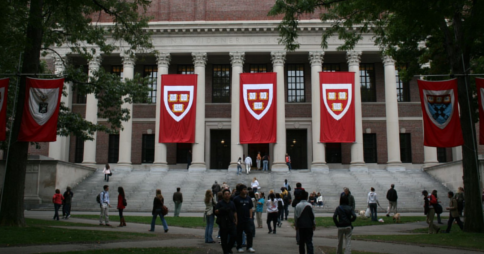
The lawsuit, being brought by the National Association of the Deaf (NAD) and four individuals who are Deaf and hearing impaired, alleges that Harvard and MIT violate the Americans with Disabilities Act and the Rehabilitation Act by denying access for Deaf and hearing impaired people to thousands of videos and audio tracks that each university makes publicly available, for free, on broad-ranging topics of general interest.
In a captioned YouTube video, NAD’s CEO, Howard A. Rosenblum, said that the legal action followed the successful suit of Netflix, which resulted in 100 per cent of the video streaming service’s content becoming captioned and improved captioning in other services.
“However, that's not all. There's actually more videos out there, specifically those provided by universities and colleges,” he said. “These videos are called Massive Open Online Courses (MOOC) which have academic content and are available online.
“Such videos can be about mathematics, astronomy, cooking, even art—and there are also videos with guest lecturers and presenters like U.S. Presidents or famous stars that have been invited to campus to speak to the students and faculty. These videos are free and do not require student registration—anyone can watch these great videos!
“However, these videos are not accessible to Deaf and hard of hearing people because not all the videos have captions. Out of the very few videos that have captions, many of them have errors and are not of the appropriate quality. Moreover, there are thousands of videos that have no captions at all. This is not equal access.”
Rosenblum said that as a consequence of suing Harvard and MIT, all universities across the United States would have to improve access through providing captioned videos.
“We are suing them [Harvard and MIT] first and expect to ensure full online video access at all other universities and colleges across the country,” he said. “This lawsuit is part of our battle for full access to online media content. We want equal access for all.”
Providing captioned videos would improve access for approximately 48 million Americans who are Deaf or hearing impaired, Rosenblum added in a media statement on the lawsuit.
You can read more about the case on NAD’s website and also watch the captioned video of NAD’s CEO discussing the case.
Top of page

